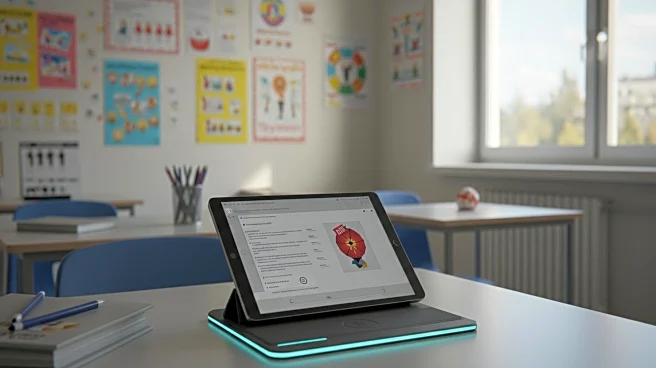What's Happening?
Zencity, a New York-based community engagement software company, has entered the education market through a partnership with Chicago Public Schools (CPS). The platform was used to gather multilingual community feedback during CPS's search for a new CEO, involving over 1,400 participants including parents, students, and educators. Feedback focused on priorities such as high-quality instruction, academic outcomes, career preparation, and equity. This initiative highlights the role of technology in facilitating inclusive and efficient community engagement processes in education.
Why It's Important?
The integration of Zencity's platform into the education sector underscores the growing importance of digital tools in enhancing community engagement and decision-making processes. By enabling diverse voices to be heard, the platform helps ensure that critical decisions in education reflect the needs and priorities of the community. This development could lead to more equitable and transparent governance in school districts, potentially influencing educational policies and practices across the U.S. The success of this initiative may encourage other districts to adopt similar technologies, fostering innovation in public education.
What's Next?
Following the successful implementation in Chicago, Zencity plans to expand its services to other school districts, with at least one district in Florida already utilizing the platform. As more educational institutions adopt digital engagement tools, there may be increased demand for technology-driven solutions to address complex challenges in education. This trend could lead to further collaborations between tech companies and educational entities, driving advancements in community engagement and educational outcomes.
Beyond the Headlines
The use of technology in education raises important questions about access and equity, particularly in diverse and underserved communities. Ensuring that all voices are heard in decision-making processes is crucial for fostering inclusive educational environments. The expansion of digital engagement tools may also prompt discussions about data privacy and security, as well as the ethical implications of technology in education.










